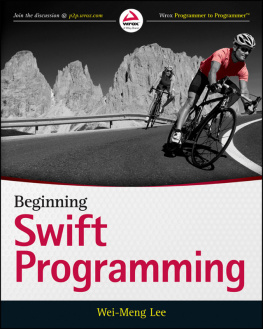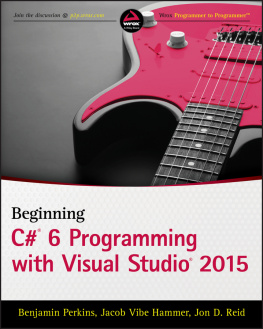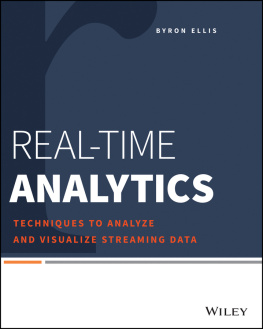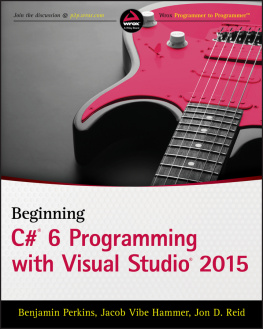Cover copyright 2019 Hachette Book Group, Inc. Hachette Book Group supports the right to free expression and the value of copyright. The purpose of copyright is to encourage writers and artists to produce the creative works that enrich our culture.
The scanning, uploading, and distribution of this book without permission is a theft of the authors intellectual property. If you would like permission to use material from the book (other than for review purposes), please contact permissions@hbgusa.com. Thank you for your support of the authors rights.
Published by Seal Press, an imprint of Perseus Books, LLC, a subsidiary of Hachette Book Group, Inc. The Seal Press name and logo is a trademark of the Hachette Book Group.
The Hachette Speakers Bureau provides a wide range of authors for speaking events. To find out more, go to www.hachettespeakersbureau.com or call (866) 376-6591.
The publisher is not responsible for websites (or their content) that are not owned by the publisher.
Library of Congress Cataloging-in-Publication Data has been applied for.
Throughout history, angry women have been called harpies, bitches, witches, and whores. Theyve been labeled hysterical, crazy, dangerous, delusional, bitter, jealous, irrational, emotional, dramatic, vindictive, petty, hormonal; theyve been shunned, ignored, drugged, locked up, and killed; kept in line with laws and threats and violence, and with insidious, far-reaching lies about the very nature of what it means to be a womanthat a woman should aspire to be a lady, and that ladies dont get angry.
Millennia of conditioning is hard to unlearn.
Even when asked specifically to write about their anger, many of the women in this book described it at first from a safe distance, explaining coolly and calmly what they were angry about. They were so accustomed to having to rationally justify any emotion they might feel, while making sure not to actually display that emotion, that even in a book about anger, a big part of the editing process was me saying, Its okay, get angry, and pushing writers to put their anger on the page.
The more that happened, the more I realized that was what I really wanted this book to be, I wanted this to be a place where our anger could live, a place for us to take up space after generations of being told to shrink, to rage after a lifetime of being told to behave. I wanted these pages to sizzle and smoke with womens awesome rage, no longer tucked away or extinguished, but right here on the surfaceso get ready or get out of the way.
That meant something a little different for each writer. Essays in this collection explore the borders where anger meets other emotions: Erin Khar on when anger turns into guilt, Megan Stielstra on when fear turns into anger, and Marissa Korbel on when anger masquerades as sadness through involuntary rage tears. Others delve into the ways that anger intersects with identity, and how some womens anger is seen as more socially acceptable than others: Shaheen Pasha on the complicated anger of being a Muslim woman in America, Keah Brown on surviving the anger shes felt at herself and her disability, Samantha Riedel on experiencing anger differently before and after gender transition, and Monet Patrice Thomas on the ways that Black women, especially, are not allowed to express anger. And many describe the ways that women, brilliant alchemists that they are, have found to turn their anger into whatever they need it to bestrength, motivation, protection, healing. Some of the essays in this collection rage like wildfire, some smolder like embers, some glow like heated metal, but they all radiate the heat of women bringing their anger out of hiding and into the open air.
There has been so much discussion recently of the power of womens anger, how it can be harnessed as a political engine, how its been repressed for too long and is now going to erupt like a volcano and change the landscape of society for the better. And Im as swept up in the revolutionary catharsis of our communal outpouring as the next girl, as ready to take a stand, to say no more, to say fuck you, and to say me too.
But amid all of this talk about womens anger, as an idea, a force, a tool, I wanted to also look at that anger on its own terms, to give writers an opportunity to express and explore their anger, not as a means to an end but for its own sake. Our anger doesnt have to be useful to deserve a voice. Just as women who are so often reduced to sexual objects or babymakers, caregivers, mothers, virgins, and whores, deserve to be considered as whole individuals on their own terms and for their own sakes, I wanted to give their anger space to exist solely for itself, without being packaged and used for someone elses gain. Thats what this anthology is for.
There is so much to be angry about. Im angry that were destroying the planet and dooming ourselves to an unlivable future; angry that profits are prioritized over human lives; angry that racism is such a huge and deadly part of nearly every aspect of society, but still so many refuse to see it; angry that violence against women constricts the edges of our lives until were crouched down seeking safety that doesnt exist; and angry that willful ignorance and misinformation have taken over political discourse so that it feels impossible to convince so many people that any of this is a problem.
Every woman I know is angry.
But this anthology is not about the things that make us angry; its about us, and all the many ways we feel and live with our anger. There have been times in my life when my anger has made me small and hard and brittle, and there have been times when its made me expansive and unstoppable, like fire. There have been times when my anger was frantic, sharp like splinters, shattering out in every directionlike when I was a teenager grieving the loss of my father by raging at the world, getting drunk and high first thing in the morning, getting into fistfights on the street, stealing, vandalizing, dropping out of high school, and transforming myself into a scantily clad, malnourished middle finger flying in the face of anyone who crossed my path. But lately, my anger is deep and wide and steady, not as immediately visible under the surface of my put-together life, but just as present. Lately, my anger is a place inside myself that I breathe into to make myself larger, taking up space and making space for others, by refusing to let my boundaries be ignored, by standing up for women in trouble, by stoking the fires of the incredible writers in this collection and bringing their work, and their anger, into the world as a salve for all the other angry women out there.








